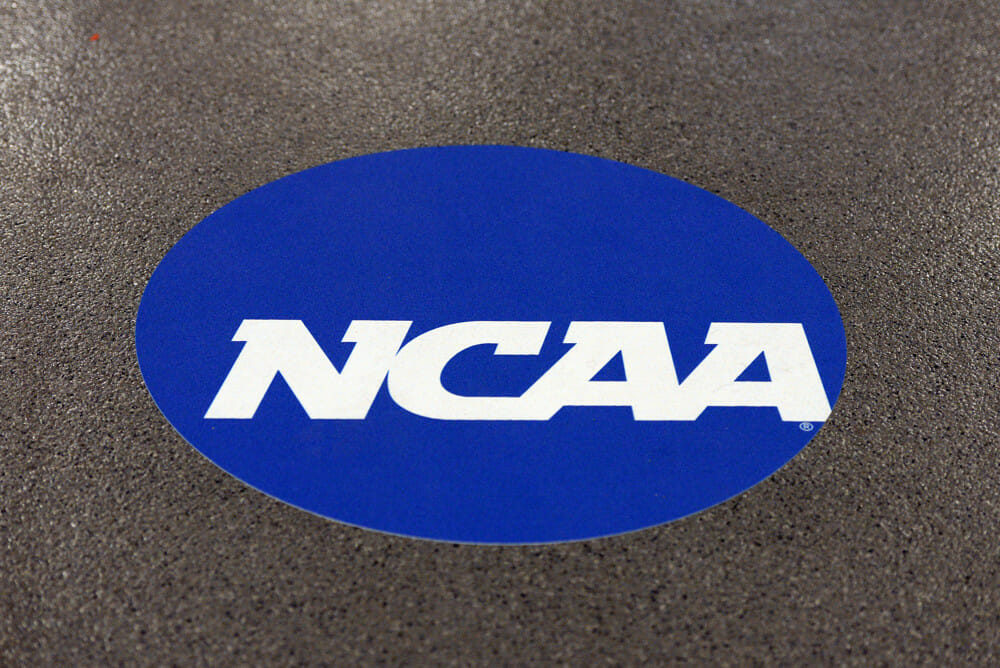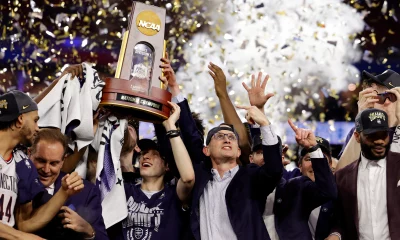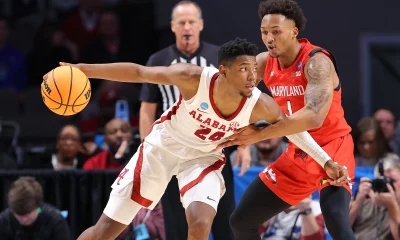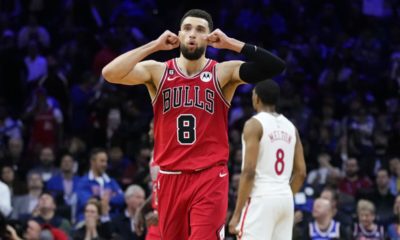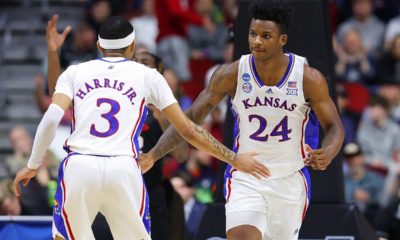The NCAA is betting heavily, to the tune of $613 million, on being able to play the complete 2021 NCAA Tournament this year after canceling last year’s event due to the COVID-19 pandemic situation. That $613 million is the projected revenue from this year’s NCAA tournament, if they can pull it off. Logistics for pitting 64 teams against one another for the ‘Big Dance’ are complicated during the best of times.
NCAAB Wants To Cross The Finish Line
With the coronavirus still on the loose, it is going to take all the planning they can muster up this year, plus a sizable portion of good luck in order to make it work. NCAA athletic programs are almost all hurting financially this year due to the ongoing COVID crisis, and the NCAA itself appears to have stepped up to the plate by announcing that, if all 67 games of the tournament are played as scheduled, they will be paying out the entire $613 million in projected revenues from the games.
Fortunately, recent announcements from the three companies producing the COVID vaccines has been encouraging and, in general, the numbers are at last trending downward. So, there is ample reason for concern, and there is ample reason for hope, as well.

100% Bonus up to $1,000 + $25 Token
T&C APPLY | NJ, MI ONLY Join Now
100% Bonus up to $1,000 + $25 Token
T&C APPLY | PA ONLY Join Now
$1000 Risk Free Bet
T&C APPLY | NJ, PA, IN, CO, NJ, MI, IA, LA, MS, OH ONLY Join NowRead The Fine Print On Insurance Policies
As it turned out, there actually was an insurance policy taken out last year just in case the tournament had to be canceled for any reason. However, the insurance only covered about $270 million of the anticipated $800 million in revenues from the tournament that never happened.
Of that $270 million from the insurance, only about $225 million was actually paid out to NCAA member teams, which only amounts to around 40 cents on the dollar. The broker of the insurance policy held by the NCAA, John Bea, said, “What the NCAA received is the largest event cancellation payout in the history of event cancellation.”
Just where the NCAA stands with the insurance company this year is a matter of contention. However, 2021 is the last year of their current three year agreement and will be done after this year’s tournament is over. Insurance specialist Richard Giller recently said in an interview, “I don’t know who believes that insuring a quarter of your value of your event is best practice.” However, sources within the NCAA have told the press that the premiums would be prohibitively expensive to cover the entire cost of the tournament.
Anxiety High For March Madness
Actually, no one at the NCAA, or anywhere else for that matter, had even considered the possibility of the NCAA tournament being canceled in its entirety last year. Still today, the annual NCAA Tournament, otherwise known as March Madness, is the chief source of income for the NCAA’s 1,268 members. The anticipated $800 million in annual tournament income is 72% of the NCAA’s total budget of $1.1 billion.
That expected $600 million in revenues that was projected to come back to the member colleges and universities never made it last year. It was supposed to help fill the school’s athletic departments coffers and provide operating capital as well as funds paid directly to athletes in need.

100% Bonus up to $1,000 + $25 Token
T&C APPLY | NJ, MI ONLY Join Now
100% Bonus up to $1,000 + $25 Token
T&C APPLY | PA ONLY Join Now
$1000 Risk Free Bet
T&C APPLY | NJ, PA, IN, CO, NJ, MI, IA, LA, MS, OH ONLY Join NowCollege Athletics Take A Hit
As with other sports, television rights are what financially supports modern college athletic departments. The NCAA’s contract with CBS and Turner Sports was extended in 2016 to run through 2032 at a cool average of $1 billion per year.
Which makes it more imperative than ever that all 68 teams show up healthy to the tournament in Indianapolis, and that the games go off as scheduled for TV viewing by NCAA fans around the world. And that is why the NCAA’s announcement of their intention to pay out the entire $613 million to its members is significant, despite a considerable shortfall in ticket sales for the Big Dance this year.
Previously, the NCAA had announced that they will allow only 25% capacity crowds at tournament venues due to the COVID-19 crisis.

